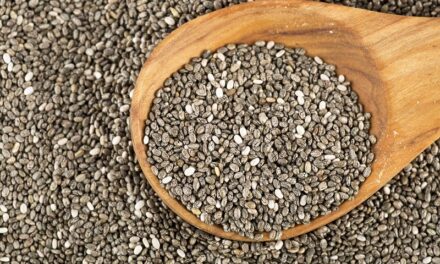Despite its recent surge in popularity, fasting is a practice that has been around for centuries and plays a central role in many cultures and religions.
There are several different methods of fasting, defined as abstinence from all or some food or drink for a specified period of time. Usually, most of the fasts are for 24 to 72 hours.
(Learn – Best exercise for weight loss)
Intermittent fasting, on the other hand, involves cycling between meals and periods of fasting. During this, one has to be hungry for a few hours to a few days at a time. Fasting has so many benefits, in this article, we will tell you about it –
Fasting benefits
Boost brain function
- However, research is mostly limited to animals. (Learn – fun facts related to the brain)
- Several studies have found that fasting can have a powerful effect on brain health.
- It has been seen in a study that intermittent fasting improves the function and structure of the brain.
- Fasting can also help relieve bloating.
- It can also help prevent neurodegenerative disorders.
- In particular, animal studies suggest that fasting may protect and improve outcomes for conditions such as Alzheimer’s disease and Parkinson’s disease.
- However, more studies are needed to evaluate the effects of fasting on brain function in humans.
Limiting calorie intake
- Fasting also helps in reducing weight, boosting metabolism.
- Theoretically, abstaining from all or some of the foods and beverages should decrease your overall calorie intake, which can lead to weight loss over time.
- Some research has also found that short-term fasting can boost metabolism by increasing levels of the neurotransmitter norepinephrine, which can lead to weight loss.
- In addition, research has found fasting to be more effective than calorie restriction in increasing fat loss while preserving muscle tissue.
Controlling blood sugar
- Several studies have found that fasting can improve blood sugar control, which may be especially useful for people at risk of diabetes.
- In fact, a study in 10 people with type 2 diabetes showed that short-term intermittent fasting significantly reduced blood sugar levels.
- Meanwhile, another review found that both intermittent fasting and alternate-day fasting were as effective as limiting caloric intake in reducing insulin resistance.
- Decreased insulin resistance can increase your body’s sensitivity to insulin.
- This allows it to more efficiently transport glucose from your bloodstream to your cells.
- Coupled with the potential blood sugar-lowering effects of fasting, it can help keep your blood sugar stable.
- Thereby preventing spikes and accidents in your blood sugar level.
- However, keep in mind that some studies have found that fasting may affect blood sugar levels differently for men and women.
Enhance growth hormone
- Human growth hormone (HGH) is a type of protein hormone that is central to many aspects of your health.
- In fact, research shows that this major hormone is involved in growth, metabolism, weight loss, and muscle strength.
- Several studies have found that fasting can naturally increase human growth hormone levels.
- Fasting can help maintain stable blood sugar and insulin levels throughout the day, which can further optimize human growth hormone levels.
- Some research has found that maintaining increased insulin levels can lower human growth hormone levels.
Cancer prevention
- Apart from preventing cancer, it helps in improving the effectiveness of chemotherapy.
- Several animal and test-tube studies have shown that fasting helps treat and prevent cancer.
- Despite these promising findings, additional studies are needed to see how fasting may affect cancer development and healing in humans.
Better health
- Whereas acute inflammation is a normal immune process.
- Which is used to help fight infections, chronic inflammation can have serious consequences for your health.
- Research suggests that inflammation may be involved in the development of chronic conditions such as heart disease, cancer, and arthritis.
- Some studies have found that fasting can help reduce inflammation levels and promote better health.
Reduce aging
- Several animal studies have yielded promising results on the potentially life-extending effects of fasting.
- It has been seen in many studies that fasting helps in reducing aging.
Good for heart health
- Heart disease is one of the main causes of death worldwide.
- The causes of heart diseases include dangerously high levels of blood pressure, triglycerides, and cholesterol levels.
- Changing your diet and lifestyle is one of the most effective ways to reduce the risk of heart disease.
- Some research has found that adding fasting to your daily routine may be especially beneficial when it comes to heart health.
- It has been seen in studies that fasting reduces the level of blood triglycerides, the main causes of heart disease such as bad cholesterol levels.
How to do fasting?
- Water fasting – Only water can be drunk during fasting.
- Intermittent Fasting – During this, there are only a few hours a day during which food is eaten. Whereas during other hours only water etc. can be drunk.
- Juice Fasting – Juice, etc. can be taken during fasting.
- Calorie Restriction – Calorie has to be limited during every week.
Safety and Side Effects of fasting
- Despite the long list of potential health benefits associated with fasting, it may not be right for everyone.
- If you suffer from diabetes or low blood sugar, fasting can cause your blood sugar levels to rise and fall, which can be dangerous.
- If you have any underlying health condition or are planning to fast for more than the first 24 hours, it is best to talk to your doctor.
- Additionally, fasting is generally not recommended for older adults, adolescents, or people who are underweight without medical supervision.
- If you decide to try fasting, make sure you replenish your diet with nutrient-rich foods during your eating period.
- Stay well hydrated, to reap maximum health benefits.
- Additionally, if fasting is done for a longer period of time, try to reduce intense physical activity and get plenty of rest.
Lastly
Fasting has many health benefits, ranging from weight loss to better brain function. Fasting is a practice that has been associated with a wide range of potential health benefits, including weight loss.
As well as improving blood sugar control, heart health, brain function, and cancer prevention.
From water fasting to intermittent fasting and calorie restriction, there are many different types of fasting that fit in with every lifestyle.
(Learn – Keto Diet Plan to Lose Weight)
When combined with a nutritious diet and a healthy lifestyle, incorporating fasting into your routine can benefit your health.
References –






















 English
English हिन्दी
हिन्दी








